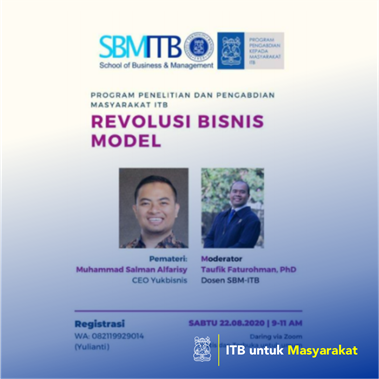

Taufik Faturohman
World Bank said that "global coordination and cooperation" will be critical, and waqf is a kind of social cooperation that potentially impacts society. Dr. Yusuf al-Qardhawi said that there are six ways from Islam to fix the poorness and distress; work, living guarantee (kafalah) from family/relatives, zakat, living guarantee from Islamic treasury, fulfillment obligations other than zakat, voluntary and personal alms (al-Qardhawi, 1985), and we know that waqf is part of voluntary support given to the society where work cannot be optimized, and society itself facing the recession so that it needs the voluntary and solidarity actions and programs. The method used in this program is through modeling through literature studies, benchmarking, interviews, Focus Group Discussion (FGD) and training. The literature to be studied is focused on the study of the theory and application of productive waqf worldwide. Benchmarking is carried out to institutions that have succeeded in empowering the economy of the ummah, such as YPM Salman ITB and the Daarut Tauhid Foundation. Meanwhile, the FGD was conducted with resource persons from the Al Fatih Pilar Civilization Foundation and the Indonesian Tawaf Foundation. Training will be provided to the management of productive waqf institutions so that they can be applied in supporting the activities of educational institutions
Penerapan Karya Tulis
COVID-19 has brought the world to an economic situation that was unthinkable before. It brought the world into its deepest recession since the second world war (Bank, 2020). The baseline forecast visualized a 5.2 percent contraction in global GDP in 2020 (Bank, 2020). This situation hit the emerging market and developing economies (EMDEs) harder than financial stress in the 2007-2009 global financial crisis. According to the World Bank's global economic outlook, the policy priorities should be reducing health and human costs and attenuating the near-term economic losses while addressing challenges such as informality and weak social safety nets that threaten the vulnerable populations. In this context, waqf can be one of the forms of social safety nets that potentially help vulnerable populations in various forms, such as microcredit for small traders or giving affordable health services.